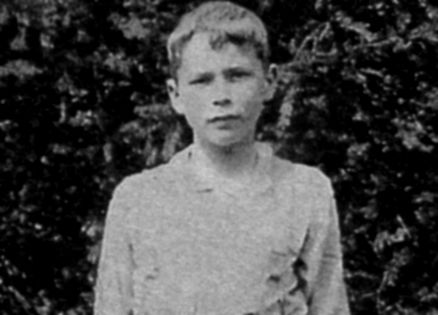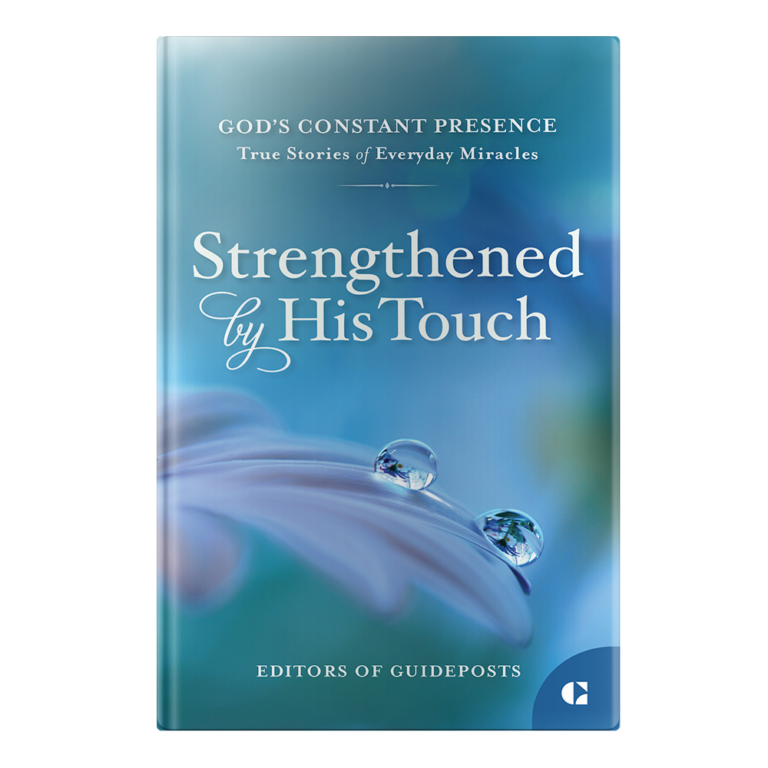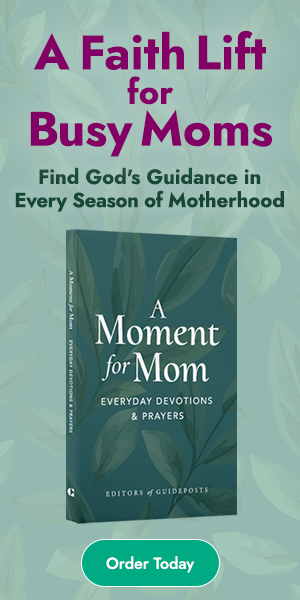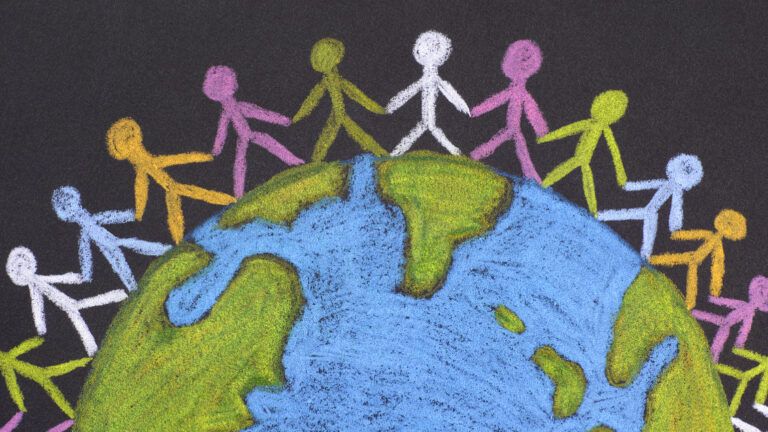I was barely six years old when the conversation around our dining room table began to revolve around a man named Adolf Hitler.
Dinner came in the middle of the day, and there were always 15 to 20 people present, including workmen from the water-powered flour mill that had been in our family for six generations. I can see them now, troop-hag in from work, still white with flour even after a scrubbing.
The talk about Hitler didn’t start right away: Fast came Scripture reading and prayer. But when the Bible was put on the sideboard and the covers came off the steaming tureens, the excited discussions would begin.
Tunes had been hard in Germany for many years. But Hitler was going to change all that, the grown-ups said. His latest radio address would be discussed point by point.
Papa noted that when Hitler talked about his plans, he would always add, “… insofar as the Almighty will help us.” It was always the Almighty, never God, but still… “He sounds like a believer,” Mama agreed.
Later, of course, Hitler’s true colors came out. He began an unstated campaign against any loyalty other than to himself—especially among the young. At the age of 10 I had to start attending Jungvolk meetings; these “happened” to be scheduled on Sunday mornings, right at church time. At 14 I graduated to the Hitler Youth. Sunday after Sunday I’d put on my brown shirt and get on my bike and pedal off to march and sing and swear undying allegiance to the Führer.
My parents said little to me about their misgivings—to do so would put us all in danger. Occasionally, though, their feelings would show through.
By this time every business letter had to close with the words Heil Hitler. One day my father and I were alone in the mill office as he went through his mail. “In this family,” he burst out suddenly, “we don’t say, ‘Heil Hitler!’ We say, ‘Heil Jesus!'”
But though they seldom put their feelings into words, my parents’ actions spoke for them. Every Sunday evening a group met for worship in our home.
One day the police arrived to enforce a new law closing such independent churches and confiscating their property. They carted away the hymn books, the portable pulpit, the banner saying “Jesus is Lord,” even the broom Mama used to get the room ready for the meeting.
“The Führer is not against religion,” the police chief read from the new regulations, “You may continue to meet, but never in groups of more than three.”
My father and mother did not hesitate. They shifted the now-illegal worship services to the mill, where the roar of the water and the clank of machinery drowned out the songs and prayers.
I was 15 years old now and tall for my age, blond and blue-eyed, the very type Hitler associated with his fantasies of a “master race”—and the kind he wanted for his elite SS. Sure enough, one day an SS team arrived in our small town of Plüderhausen, seeking recruits.
A dozen of us boys were driven to a nearby castle, where we were met by an SS officer, splendid in gleaming boots, braided epaulettes and soft-crowned cap. He set our pulses pounding as he described the glorious exploits of his unit in the liberation of neighboring lands.
Stressing the honor being done us, he urged us to enlist then and there.
However, I did not understand the resistance rising within me. To a youngster of 15 brought up on Nazi doctrine, as sensitive to peer pressure as any teenager, everything this dashing hero-figure said seemed undeniable. Yet I felt a need for caution.
Was it my parents’ prayers? Again they said little—but I knew they prayed for me every day. And in the secret church meeting in the mill, we sang that “prayer removes mountains.”
I refused to volunteer. The officer told me I did not love my country and called me a coward. I knew the first was not true and I hoped the second was not true. But still I would not join the SS.
Two years passed, years of growing loneliness. I was 17, enrolled in millers school, when in the spring of 1944, along with other teenagers and men too infirm to have been called up before, I was drafted into the army.
The fact that the military was making do with such unpromising material would have alerted wiser heads to the fact that Hitler’s 1,000-Year Reich was in trouble. But our radio and newspapers carried only accounts of victory.
My first night in basic-training camp, the other draftees rode me when I brought out my Bible. “You’re crazy,” one boy mocked. “That’s just the Jews’ book of lies. In a few years no one will read it anymore. We’ll all be reading Mein Kampf.”
From then, on, when I wanted to talk to God, I’d go out into the fields, or find an empty storeroom, or pull the blanket over my head at night. Maybe the SS officer had been right when he called me a coward.
At the camp, we were taught to shoot. Our rifles, the sergeant told us, would be everything to us. He warned us never, never to lose the ones we were about to be issued. Anyone who did would be court-martialed.
Only after this speech did he hand out our rifles, writing down the serial number in the Soldbuch that every soldier had to carry.
To my great surprise I turned out to be an excellent shot. When the instructor collected the paper targets from the firing range, mine would always have the highest score. I was tremendously proud.
It wasn’t until one night during my prayer time that I began to think about the purpose of all this practice. Suppose that were not a piece of paper in the sights of my rifle, but a man…
I thought about my father and mother and their remnant church—mostly women and old men now—meeting three times a week in the noisy mill, risking arrest, which had already happened to some of our Christian friends.
“Lord Jesus,” I prayed beneath my blanket, “let me never kill a man for a government that makes people hide to worship You.”
In May 1944, after a mere two weeks of training, we raw recruits were sent to the French coast to help man Hitler’s “impregnable” Atlantic wall. My unit was assigned to a bunker in Normandy, just east of the River Seine.
We had been told that our air force would support us if the Allies were so foolish as to attempt an invasion. But although Allied planes flew overhead often, we saw no German ones.
In early June the Allied bombing raids increased. On the night of June 5 the sky throbbed with more planes than I dreamed existed. Toward morning we saw shell flashes in the distance and realized there must be ships offshore.
By daylight the rumors were confirmed: The “impossible” invasion had begun.
Our sector was not hit in the initial assault, and our confidence remained high. Each night we climbed out of the bunker and stood scanning the sides. Surely this was the time when the Führer would launch his Secret Weapon!
In mid-June we left the coast and began a tactical maneuver back up the Seine. Not a retreat, our officers stressed—a strategic repositioning for the counter-offensive the Führer would soon be mounting.
Now that we were billeted on French farms rather than in fortified bunkers, our wariness over our rifles increased. Each night we placed them beneath the straw we used for beds—each man sleeping on top of his weapon.
Although the din of battle was all around us, our unit had so far done no fighting. Across the Seine, as we moved upriver, we occasionally caught sight of a gray-green tank with a white star on the side. Americans.
Once we saw German soldiers struggling toward us across the river, some paddling inflated rafts, others swimming, weapons abandoned. Why didn’t Hitler unloose the Secret Weapon?
And then one day tanks opened fire at us from across the river. We scrambled into the fields. I crouched in some waist-high wheat, ran through an apple orchard, stumbled past an area marked Land Mines and ran some more.
That night, I joined a unit made up of men from other scattered companies. From then on I moved with such makeshift groups, stopping at a farmhouse for a night or a week, sleeping on my rifle.
Although I had now been fired at a number of times, no unit that I’d been with had yet been in a position to return the fire. Was God answering my prayer that I never shoot at a human being?
One night we bedded down in a great stone barn with sentries posted outside. I shaped a pallet of straw, placed my rifle beneath it as usual, and lay down, as always, right on top.
Next morning when the corporal roused us we groped under the straw to retrieve our rifles, then lined up stiffly for inspection.
Except me. I was still on hands and knees sifting through my little heap of straw.
“On your feet, soldier!” the corporal barked. “With your rifle!” he snapped as I obeyed.
“I—it—” I stammered. “It’s not here!”
“What do you mean, ‘not here’?”
I gestured helplessly at the scattered straw. “It was there last night, right underneath me. Only—now it’s not.”
The entire unit searched that barn from end to end. Those who’d slept nearest me confirmed that I’d placed the weapon where I said. The corporal checked every rifle in the barn against the number in my Soldbuch.
No other soldier had taken it—and no one from outside could have got in past the guards. How could a rifle disappear into thin air?
The corporal was fuming. Our orders were to march out, and I’d delayed us all! Nor was there a spare rifle to give me. Our troops were short of everything—ammunition, weapons, medicine.
All that day we marched, followed by our horse-drawn supply cart, while I saw myself standing in front of a firing squad, my parents getting the news…
Late that same afternoon we engaged in our first exchange of fire. The Allies were on the other side of a small valley. Our squad took cover and began firing.
Except me. With no rifle to shoot, I was put in charge of the terrified horse. As bullets whined around us I tried to calm the panicky animal, though I was easily as frightened as he.
It wasn’t until that night, reading my Bible in a solitary corner of yet another barn, that I realized what had happened. That day, for the first time, the order had come to shoot. That day, for the first time, I had been unable to obey.
For the next several days I marched and bivouacked and carried equipment, but I never fired a weapon because I did not have one. The threat of court-martial hung heavy over me, but we were regrouping too often for official procedures to be followed through.
One morning in July my current unit was approaching a bridge when two Canadians armed with submachine guns jumped up on either side of the road.
“Halt! Hands up!”
Our lieutenant had an automatic pistol, which he let drop as he raised his hands. The rest of us threw our rifles clattering to the ground. All, of course, except me.
The mystery of the missing rifle was never solved. I spent the final 10 months of the war as a prisoner in England, working on a farm owned by a family that reminded me a lot of my own.
I worried about my parents, of course, as the Allied forces pushed on into Germany and the fighting drew near to Plüderhausen. All I could do was pray that they be kept safe (and they were!), as they had prayed for me.
Praying was a lot, though. That was a truth I’d learned at age 17, groping about in some straw on a stone floor. Prayer could indeed remove mountains—and rifles too.






